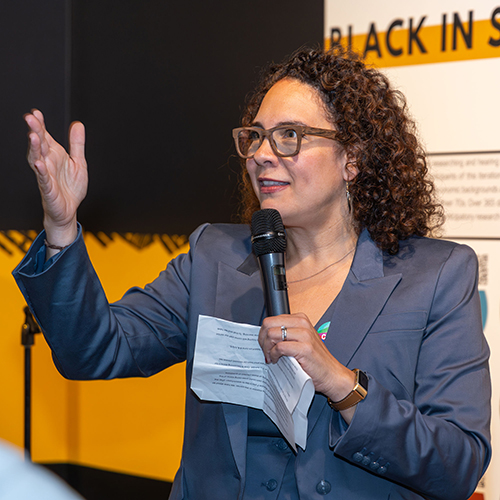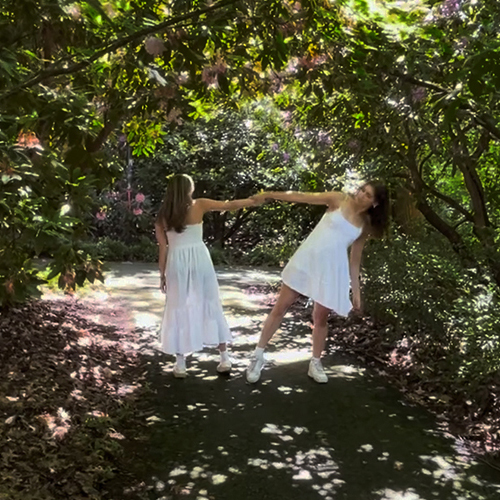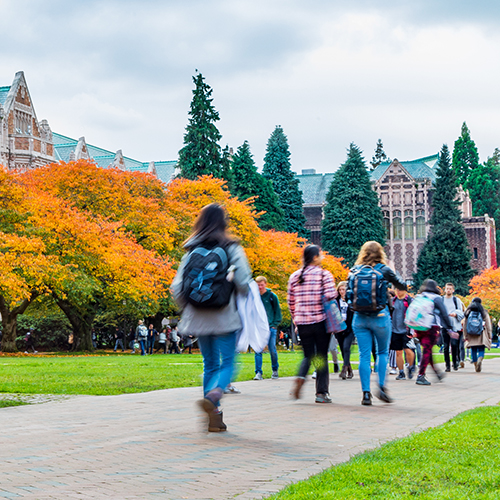Fifty years ago, the UW School of Music established an ethnomusicology program with support from the Ford Foundation. The field was in its infancy, and the program—consisting of one professor—was just the third of its kind in the world.
The program has since awarded hundreds of graduate degrees, established a robust ethnomusicology archive, and hosted more than 100 visiting artists from regions around the globe. Beginning in autumn 2013, on the heels of its 50th anniversary, the program will offer an undergraduate degree as well.

“Ethnomusicology is both the study of music in culture and the study of music as culture,” says Patricia Campbell, professor of music and director of the program. Four full-time faculty offer broad survey courses, region-specific seminars, and training in theory and research methods. The program also features hands-on study with visiting artists and graduate field research in far-flung locations.
“The program’s signature is its Visiting Artist Program, which brings musicians from around the world to our campus,” says Campbell. “We have fabulous musicians on the faculty here, but there’s nothing like learning about the music of a specific culture from a musician from that community.”
Over the decades, musicians from dozens of countries from six continents have taught the music of their region, often playing instruments that are unfamiliar to many Americans. Most years, two visiting artists have stayed for a full academic year, though recent budget cuts have necessitated shorter visits. During the 2012-2013 academic year, three visiting musicians are spending one quarter each on campus: a Wagogo musician from Tanzania (Kedmon Mapana), a Senegalese percussionist (Thione Diop), and a Hindustani vocalist (Srivani Jade).
“Our visiting artists have taught tabla from India, the Turkish Ud, Persian flute from Iran, Tibetan trumpets, Andean flutes and panpipes, Venezuelan harp, Tex-Mex conjunto music, the Japanese koto…the list goes on and on,” says Campbell. “They mainly share performance craft, but it also motivates students to ask questions like, ‘What is the value of this instrument in the culture? Do women play it? If not, why not? What are the politics of gender in this music?’ Learning to perform music from a traditional artist leads to an understanding of people, their beliefs, and values. Music is a way in to the study of culture— everything from ethnicity, race, religion, and gender to the interdisciplinary relationships of music and politics, nationalism, and even transnationalism.

The Visiting Artist Program is a selling point for many students considering the UW’s Ethnomusicology Program, but it’s not the only draw. First-year graduate student David Aarons, who hails from Jamaica, chose the UW because his research interests dovetail with what he describes as the “highly revered work” of faculty in the program. “I am particularly intrigued by the ways in which the music practices in the Caribbean were shaped and influenced by the histories of the various Caribbean nations,” explains Aarons, who adds that the program has a “reputation of producing brilliant scholars in the field.”
Other graduate students have found their way to the program through music performance, anthropology, regional studies, and other disciplines. Some have developed an interest after serving in the Peace Corps. “There are all kinds of journeys
to ethnomusicology here at the UW,” says Campbell. “The program tends to attract people interested in interdisciplinary studies. Students have an interest in music, but also in the many meanings of culture.”

That interdisciplinary emphasis leads students to take courses outside the School of Music that complement their music study. Bonnie McConnell, a PhD student, has done interdisciplinary work in global health and anthropology, completing a graduate certificate in public health in 2010. McConnell is currently in The Gambia conducting dissertation research on kanyeleng groups—women’s performance groups that provide intervention and a social support network for women facing problems of infertility or child mortality. “These groups play a central role in health education programs where they use song, dance, and drama to skillfully address sensitive issues such as sexual and reproductive health,” says McConnell, whose research is supported by a Fulbright-Hays Fellowship.
When McConnell returns to Seattle, she is likely to share her audio and video recordings of kanyeleng performances with the UW Ethnomusicology Archives, the School of Music’s extensive collection of field recordings, live concert recordings, films, videos, and musical instruments. The archives, established in 1962, boast nearly 20,000 recorded items that are available to faculty, students, and others studying various musical traditions.
The archives also include about 400 musical instruments, most acquired in conjunction with the Visiting Artist Program. In anticipation of a musician’s visit, the UW purchases or seeks instrument donations so that students can learn and perform with the visiting artist. Most instruments remain behind when the visiting artist leaves—everything from sitars and tablas from India to murumbas and mbilas from South Africa.

Laurel Sercombe (MLibr 1977; PhD, Music, 2001) has served as ethnomusicology archivist for three decades, managing the extensive collection. Her work inspired her to pursue a PhD in ethnomusicology as well. Like other alumni, Sercombe considers her study with the program’s visiting artists a highlight. “As a student, you study with whichever visiting artists are here,” she explains. “I was the worst sitar student. I was the worst everything student. I couldn’t even sit right. But I had to remind myself that it was about more than that. It was really very humbling.” Sercombe adds that students’ relationships with visiting artists can lead to lifelong friendships. “They can become like a member of the family,” she says. “They can be someone the student will always be connected to.”
Sercombe’s belief in the Visiting Artist Program, coupled with her concern about its recent downsizing, led her to join with fellow alumni Lorraine Sakata (MA 1968, PhD 1976) and Philip Schuyler (MA 1974, PhD 1979)—both of whom have also served as School of Music faculty—to create the Ethnomusicology 50th Anniversary Endowed Fund, which will provide critical support to the Visiting Artist Program.

That fund and the new degree offering for undergraduates have given the Ethnomusicology Program a boost as it passes the half-century mark. When this golden anniversary year comes to a close, the program will celebrate as it does every year, with two spring concerts: one featuring visiting artists, and another organized by graduate students.
“Sometimes the UW Steelband closes the student concert, and people are dancing in the aisles,” says Campbell. “It's great fun, high energy, and a way to celebrate music and culture.”
Sounds like the perfect kick-off for the program’s next 50 years.
Interested in contributing to the Ethnomusicology 50th Anniversary Endowed Fund? Visit giving.uw.edu/anniversary to donate or contact Camille Perezselsky at camille5@uw.edu or 206-543-1221 for more information.
More Stories

Interrupting Privilege Starts with Listening
Personal stories are integral to Interrupting Privilege, a UW program that leans into difficult intergenerational discussions about race and privilege.

Dancing Across Campus
For the dance course "Activating Space," students danced in public spaces across the University of Washington's Seattle campus this spring.

Meet Our 2024 Graduate Medalists
Meet the three students selected by the College of Arts & Sciences as 2024 Graduate Medalists for their accomplishments.